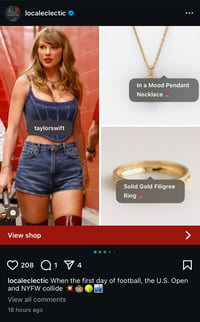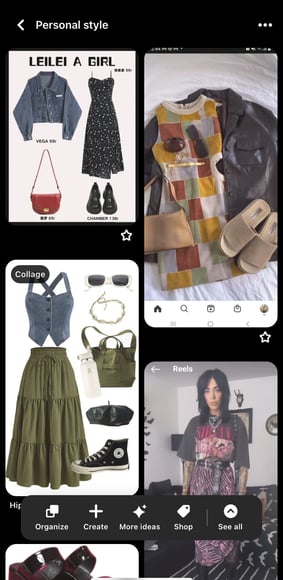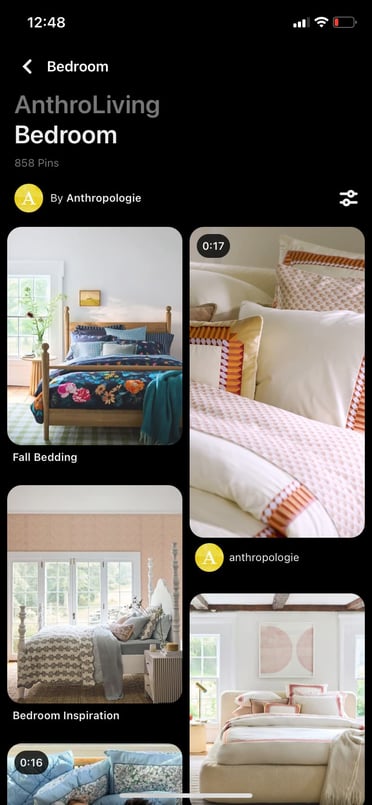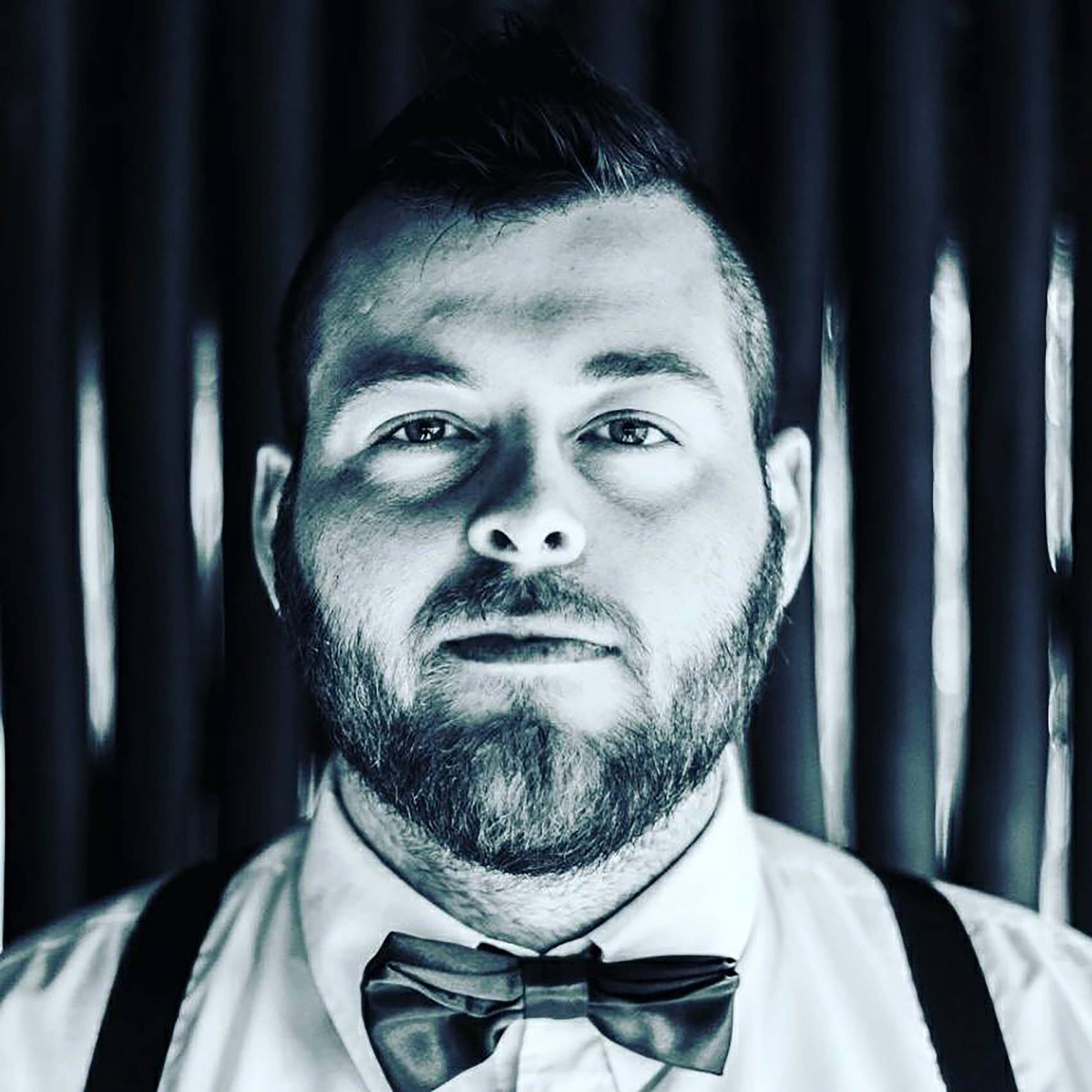Marketing is all about meeting people where they are — and more often than not, they’re on social media. For this reason, it’s crucial to invest in social product discovery.

In other words, use social media as a vehicle for consumers to discover your products.
Of course, not all social media platforms are created equal, especially when it comes to product discovery. So, if you’re looking to pinpoint the platforms consumers use the most for product research, you’ve come to the right place.
Here, we’ll dive into:
Let’s dive in.
Shopper research is critical for a better understanding of the customer journey from initial searches to website visits and eventual purchases.
Plus, the advent of digital- and mobile-first interactions has made this research even more important as the customer journey now includes multiple paths and touchpoints from start to finish.
For example, prospective buyers might hear about your brand from a friend, do their research on social media, and then interact with your e-commerce store through their mobile device.
Understanding all touchpoints along this journey can help companies create more seamless and streamlined experiences for consumers and increase overall ROI.
The Top Social Media Channels Consumers Use For Product Discovery
26% of consumers prefer to discover new products via social media, according to HubSpot’s 2024 State of Consumer Trends Report. Let’s take a closer look at the channels they leverage for product discovery:
Gen Z
40% of Gen Z have discovered new products on social media in the past three months, and 41% say it’s their preferred channel for discovering new products.
Almost half (48%) of Gen Z consumers prefer to discover new products via short-form video platforms like TikTok and Instagram Reels. Moreover, almost a third of Gen Z respondents say TikTok is their favorite app.
Millennials
The divide between Millennials and Gen Z seems to be narrowing in terms of how and where they discover new products. Like Gen Z, the majority of Millennials in our survey (43%) say they’ve discovered a new product via social media in the past three months.
Furthermore, 47% prefer discovering new products on social media via short-form videos like Instagram Reels, TikToks, and YouTube Shorts.
“Social media allows me to see the products in context,” says consumer and HubSpot Marketing Manager Erica Santiago. “Whether it’s an influencer or creator using the product or someone demonstrating how to use it—short-form videos allow me to quickly assess how a product works and if I want to buy it.”
Gen X
Gen X discovers new products on social media at the same rate as Gen Z, with 40% saying they’ve discovered a new product on social media in the last 3 months.
And like both Millennials and Gen Z, the majority of Gen X (36%) prefers short-form videos when it comes to finding new products on social media.
Baby Boomers
Social media falls flat for boomers—only a slim 20% have discovered a product on it in the past three months, and only 8% prefer purchasing a product through that medium.
That said, of those who use social media (43%) prefer discovering new products via social media marketplaces where purchases happen off the app. An example would be Facebook Marketplace.
Social Media Product Strategy Examples
1. Dizzy With Excitement
Dizzy With Excitement is a wallpaper brand known for its quirky and artistic designs.
To bring awareness to its brand, DWE collaborates with other creators and brands that focus on off-the-wall designs by incorporating those designs into the wallpaper. The brand then promotes these collaborations via short-form video platforms like TikTok.
For example, DWE collaborated with TikToker Kaarin Joy, who specializes in unique, whimsical home DIY projects. DWE created wallpaper based on Joy’s DIY projects, and Joy showed on TikTok the wallpaper being displayed in her home, tagging DWE in her posts.
2. Heidi Daus
Heidi Daus is a brand specializing in dazzling, sparkly statement jewelry. While the brand doesn’t have an official TikTok, it’s starting to leverage TikTok by collaborating with creators like Andrea’s Fashion Galaxy.
Andrea is a content creator focusing on fashion and style inspiration, and she often refers to herself as a magpie due to her love for shiny clothes and accessories.
So, it made sense Heidi Daus would collaborate with Andrea, who styles a few outfits around the shiny jewelry pieces. The video also features an exclusive discount code viewers can use to buy from the brand.
Both Heidi Daus and Dizzy With Excitement are great examples of leveraging social media with influencer marketing.
3. Fenty Beauty
Makeup brand Fenty Beauty is known for leveraging influencer marketing in its strategy, which makes sense considering its founder and owner is one of the most influential pop stars in the world—Rihanna!
However, Fenty Beauty added something else to its social media strategy—creating its own TikTok filter! TikTok allows creators to create their own filters and share them with other users.
Doing so sparks trends and encourages people to make and share more content using the filter.
In July, Fenty Beauty launched a TikTok filter called its “Lip Combo Generator.” The generator cycles through pairs of Fenty lip liners and Fenty lipsticks before generating a combo that appears on the user’s lips.
This filter promotes different Fenty products and allows users to see which combo works for them.
When leveraging different social media platforms, think of clever ways the platform’s in-house tools can help you promote your products and give your audience and idea of how it would work for them.
For example, if you’re a clothing brand, considering making a filter matching different items to the viewer.
4. Gibson
Iconic guitar manufacturing company Gibson Guitar leverages Instagram to promote its latest guitars and amps. Specifically, the brand leans into the art of videography and photography, displaying its productvia s crisp, clean, professional videos and photos.
Most of the top performing videos feature professional videos of musicians playing the instruments or a carousel of photos highlighting the look and craftsmanship of the products.
What types of product content do consumers watch or engage with?
If you’re looking to leverage social media, it’s a good idea to know what types of branded content consumers enjoy.
More than half of consumers (52%) find funny content the most memorable, followed by content showcasing the brand’s products via demos, teasers, etc.
Which social media platform should you market products on?
- YouTube
Facebook has a whopping 3.07 billion monthly active users and has been around since the early 2000s. Most importantly, it provides many opportunities for consumers to discover new products.
Free Promotion
By now, you probably know that any company can create a Facebook Business Page. Once you create a business page, you can share posts about your products and offerings.
If you have happy customers, you can even ask them to review your business on Facebook so prospects researching you can see how you’ve pleased your customers in the past.
In addition to creating a page to highlight your brand, you can also post your products on Facebook’s Marketplace.
Although individual users often use the Marketplace to sell items they no longer want to other people, Facebook Business pages are also eligible to use this feature.
Our consumer trends survey found that a third of consumers prefer discovering new products via social media marketplaces where purchases happen outside the app.
Marketplace listings can include product shots, pricing, product specifications, and purchasing information. You should also consider talking about your products or offerings on Facebook Stories.
This might take a little extra effort because it will require you to film or create content in the Story format, but it can help you better connect with prospective buyers who want a better sense of what your brand is about.
Paid Promotion
Because Facebook’s feed algorithmically favors posts from individual accounts over businesses, you might decide that you want to put money into Facebook Ads.
Facebook Ads has a solid track record. It’s estimated that Facebook Ads can help marketers reach as many as 2.249 billion users.
With Facebook Ads, you can create advertisements with a certain goal in mind, such as conversions or in-store foot traffic. The detailed ads software also allows you to target specific audience demographics.
As a Facebook advertiser, you can either promote a post you’ve already created to ensure that it shows up on feeds of users in your demographic, or you can create native ads that might show up in feeds or on Facebook’s sidebars.
While promoted posts look like an average post with a simple tag stating they’re promoted, the native ads look more like traditional ads to make it clear to users that the content they’re seeing is paid for.
If you want to launch video-based ads, Facebook also allows you to promote video content or buy in-stream ad placements that appear in Facebook Live videos or longer videos that other users have uploaded.
YouTube
YouTube is also popular across multiple age groups. In the last three months, 68% of Millennials have visited YouTube, followed by 69% of Gen Z, and 65% of Gen X. More than half of Baby Boomers (51%) have used YouTube in the last three months.
With a branded YouTube channel, you can publish video content such as demos, tutorials, or customer testimonial videos that give insightful details about why your product is valuable.
By filming your own videos, you can insure that you’re highlighting all the great aspects of your product that make it stand out from its competitors.
Alternatively, if you don’t have time to create your own videos, sponsoring an influencer’s content, tutorial, or review related to your product allows you to tap into that content creator’s audience as they tell their followers more about your offerings.
Aside from creating your own account or hiring an influencer to give a review or tutorial, you could also consider paid advertisements. YouTube offers a few ad styles including TrueView, Preroll, and Bumpers.
These ads allow you to submit a short video ad to YouTube which is then placed at the beginning or in the middle of videos with metrics and demographics that match your brand’s target.
It’s worth noting that almost a quarter of consumers in our survey (24%) say they have discovered new products via YouTube ads in the past three months.
To learn the ins and outs of setting up an ad and determining which style is right for you, check out this guide.

Instagram is an excellent platform if you’re targeting Gen-Z or millennials who make up the platform’s primary audience.
For years, Instagram’s visual layout has made it a hot spot for influencer marketing. Influencers regularly post sponsored photos and videos about their experiences with products.
Like YouTube, these influencers also regularly publish video posts or Stories that present tutorials, reviews, and unboxings related to a product.
Aside from influencer marketing, many brands also promote their products on Instagram Stories, Instagram Live, and through standard video or photo posts on Instagram Feed.
Here’s an example where Kylie Jenner, the CEO and Founder of Kylie Cosmetics, films a Story-based product tutorial for her company’s Instagram account:

Along with free strategies, Instagram offers Shoppable posts. With Shoppable posts, you can promote a product in an Instagram post that links to your Facebook Catalog. Here’s an example of what a Shoppable Post looks like:

Here’s a blog post that goes into detail about how to use and optimize Shoppable posts.
Pinterest encourages people to pin image-based posts that inspire them to digital boards, mimicking the process of creating a physical inspiration board.
Because people come to this platform to be inspired to do something, such as travel or home decorating, they might find themselves pinning all sorts of product-oriented images on a themed board.
For example, someone who wants to redecorate their office might create an “Office Inspiration” board and pin photos of furniture or decorative items that they’d like to buy.
Here’s an example of what these boards look like:

To make it easier for people to find your products, you could consider starting a Pinterest account and making a few boards to highlight your products. Even better, you can leverage Pinterest’s product pins feature and create shippable posts like you would on Instagram.
To give you a real-world example of how brands use Pinterest, below is a board created by Anthropologie called AnthroLiving, which features shippable posts featuring the brand’s home decor products.

If you have an advertising budget, you can also consider launching pay-per-click ads on Pinterest. Pinterest Ads enables your posts to be seen by people in a specific demographic that matches your own.
The platform also allows you to A/B test photos and target ads to Pinterest users on your contact lists.
Want to learn more about Pinterest Ads and effective experiments to run? Check out this blog post from a PPC and Pinterest expert.
Reddit encourages users to create discussion threads in themed online communities, called subreddits. As the platform has evolved, many users have created both threads and subreddits devoted to talking about products, like fast-food restaurants or video games.
Below is an example of a subreddit, or online community, that Reddit users created to talk about all things related to Xbox One.

However, because comments with promotional language in them often get downvoted or buried in feeds by more engaging Reddit threads, you’ll need to be creative if you want to engage with audiences on this platform.
While you might want to keep an eye on Reddit or experiment with it, don’t put all of your time and resources into it — at least right now.
As it evolves, the platform may become an easier platform to market your brand on, but at the moment, Reddit marketing strategies still require more brainstorming and time than tactics on other social platforms.
Although this platform has been called one of the “trickiest” for marketers to crack, some bigger brands have figured out how to reach the platform’s discussion-oriented users.
For example, some brands will create subreddits related to their product, while others will interact by commenting on threads related to their industry.
Aside from creating content for free on Reddit, you can alternatively pay for sponsored posts or ads, similar to Facebook or Twitter. These ads will appear in a user’s feed or as a promoted comment in a thread or subreddit.
To learn more about the ins and outs of Reddit marketing, click here for tips and examples of how other brands have cultivated the platform.
Identifying the Right Platforms for Product Marketing
While running ads and product promotions on any social platform can help drive conversion, it’s a good idea to focus on platforms with audiences that already align well with your brand.
For example, broader audiences are actively looking for products or researching brands on Facebook, Instagram, YouTube, and Pinterest while Reddit users tend to be more trend-focused.
Similarly, if you’re marketing a B2B company, you might see a better ROI from ads on a professional network — like LinkedIn — than ads on a more consumer-friendly platform like Instagram.
Use the information provided above, and start leveraging social media for lead conversion and product marketing.


![Download Now: The State of U.S. Consumer Trends [Free Report]](https://no-cache.hubspot.com/cta/default/53/ebf9ec8e-a468-455a-943e-80aa4e6be694.png)
.png?width=531&height=354&name=Copy%20of%20Linkedin%20-%201104x736%20-%20Horizontal%20Bar%20Graph%20-%20Dark%20(9).png)


